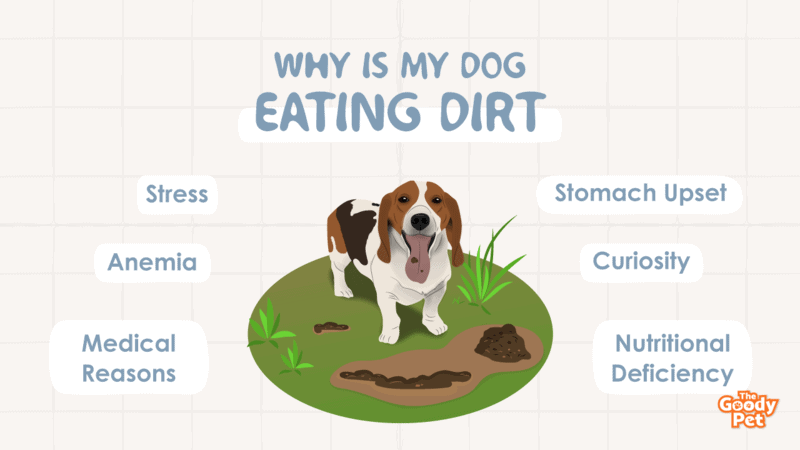Dirt eating (also known as Pica) is a common dog problem; But should your dog eating dirt be considered normal behavior or is it a sign that something is wrong with your pooch? We attempt to provide answers to these in today’s article.
Now, why do dogs eat dirt? A dog may eat dirt due to a lack of essential nutrients in its meals or because of an underlying medical condition. Additionally, a dog may also eat dirt to soothe an upset stomach or because it’s bored and has nothing else to do!
As inferred from the answers provided above, dirt eating can be an indicator of an underlying medical condition or a behavioral disorder in your pooch; Hence, why you should sit up and pay attention, once you notice your doggie eating sand. Also, steps to correct pica in dogs, as well as the possible side effects of allowing your dog continue to eat sand are all outlined in the article. But before we proceed to take a look at these, let’s see factors that may prompt a dog to eat dirt.
What Is A Dog Lacking When It Eats Dirt?
Pica in dogs is an indicator of either a medical or a behavioral issue with a dog, and these are further explained below:
Medical Reasons
There are several medical reasons why a dog may take to eating dirt, and these include:
Nutritional Deficiency
Doggies can tell when they aren’t getting enough nutrients from their meals, and a pooch may eat dirt from potted plants, in a bid to make up for the nutrients that are lacking in its diet.
Pica caused by a nutritional deficiency, is mostly observed in dogs that are fed homemade meals or poor-quality kibble.
Anemia
Anemia, which is a deficiency of healthy red blood cells, may be another reason a dog is eating potting soil.
Anemia in dogs is characterized by a reduction in the absorption of iron and vitamin B into the doggie’s blood stream. And a pooch may take to eating soil from pots to compensate for the lack of these key vitamins and nutrients.
Anemia in dogs is typically caused by ulcers, parasitic infestations, or severe hemorrhaging. And along with a sudden liking for dirt, a pooch suffering from Anemia will also suffer a loss of appetite and be lethargic.
Stomach Upset
Pica in dogs may be a sign of a stomach upset or gastrointestinal disorder. And a dog suffering from any of the aforementioned conditions may eat dirt in an attempt to calm its insides.
Behavioral Reasons
Apart from medical issues and nutritional deficiencies, your dog’s sudden liking for dirt may be behavioral and caused by one or more of the factors listed below:
Boredom
Your Fido may be eating and licking dirt simply because it’s bored and has nothing else to do – This behavior is typically observed in dogs that spend a lot of time outside, doing nothing.
Stress
Dogs react to stress in a variety of ways, and of these reactions, is a tendency to start eating dirt all of a sudden.
There are several factors that may induce stress in a pooch; These factors include major or minor changes in the pooch’s life such as, moving to a new environment, introduction of a new pet or family member and fear of objects or humans, among others.
Curiosity
Dogs are naturally very curious and tend to get their noses into a lot of things; Hence, your dog eating things they shouldn’t may be because it finds the smell and taste of such substances appealing, or just to satisfy its curiosity.
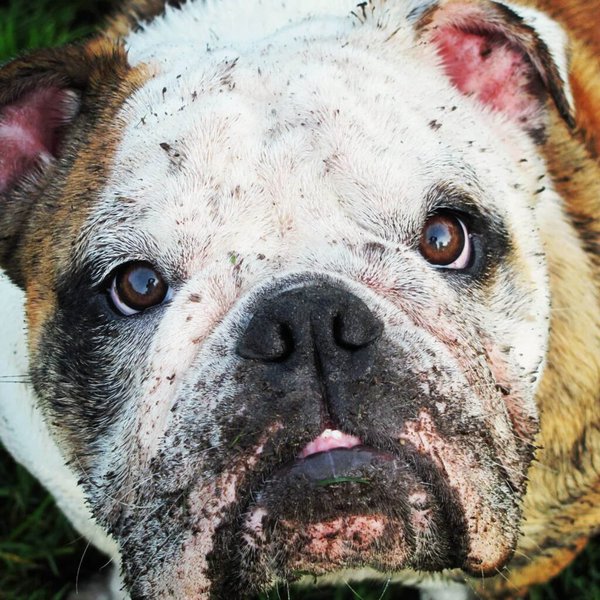
Will Eating Dirt Hurt My Dog?
While dirt eating may not be immediately harmful to a pooch, there are several side effects that may arise from your dog eating dirt if left unchecked, and these may impact negatively on your furry friend’s well-being.
That said, some of the dangers of a dog eating sand include:
Your Dog May Choke On Dirt And Get Injured
There is every tendency for your dog to pick up stones while eating dirt, and this may lead to blocking of the doggie’s throat, thereby resulting in choking.
In the same vein, if your dog picks up a sharp object, such as a stick or needle while eating dirt, then it’s likely going to puncture and injure its tongue, gum, stomach, intestine or the lining of its mouth.
Additionally, dogs that are fond of eating stones are dirt are at a high risk of suffering intestinal blockages, due to the indigestible nature of these substances. And in this case, a surgical procedure will be required to get rid of such substances.
Your Dog May Be Poisoned
Fertilizers used in potted plants aren’t the healthiest thing for a dog to consume, and your Fido may be poisoned, if it consumes large amounts of potting soil.
Similarly, a dog that eats dirt may ingest substances such as pesticides and other toxins, and ingesting these can prove to be quite fatal to any pooch.
Introduction Of Parasites And Worms
If your dog eats dirt in locations where other dogs or pets have defecated, there’s every chance of your furry friend ingesting eggs of parasites such as hookworms, roundworms or bacteria and viruses; This, in turn, promotes the growth of worms and parasites in the doggie’s insides.
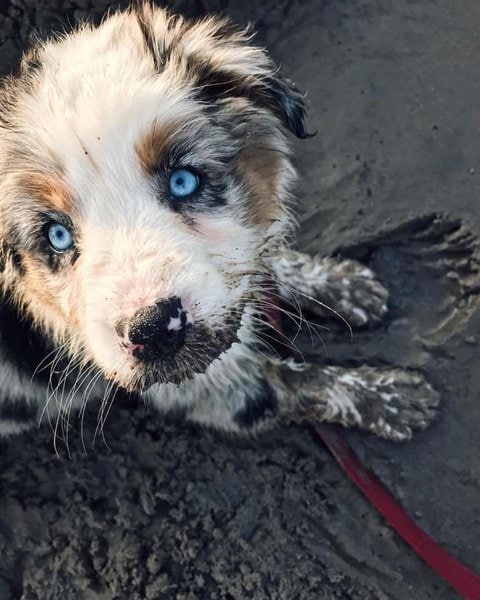
How Do You Know If Your Dog Has Pica?
Common signs of Pica in dogs include:
Tendency For Your Dog To Ingest Anything
Dogs with pica tend to want to put anything that can fit into their mouths, and this may result in the swallowing of non-food items such as plastic, clothes, sticks and others. And this is one sure-fire way of telling that a dog has Pica without needing to run medical tests.
Diarrhea
Apart from a compulsion to eat everything, dogs suffering from Pica may also pick up substances that cause intestinal irritation; This, in turn, results in loose stooling or the passing out of unformed feces by the dog.
Additional symptoms that are typically displayed by a dog suffering from Pica include:
- Lethargy
- Vomiting
- Stinky breath
- Excessive drooling
- Straining to poop
These symptoms typically manifest after your dog has swallowed foreign objects, which is why you shouldn’t take any of the signs lightly.
Visiting The Vet
Once you’ve noticed the symptoms listed above in your dog, and you suspect that it may be suffering from Pica, the next point of action is to take your pooch to the vet for a routine medical check-up.
Before taking your dog to the vet for medical examination, you should prepare info such as:
- Your dog’s feeding habit
- What, and how much you feed your dog
- The frequency with which you exercise your dog
- The nature of your dog’s environment and lifestyle, along with other helpful information
These bits of information will help your vet reach a quicker conclusion as to the cause of Pica, and will facilitate the prescription of treatments.
If your vet suspects the cause of your dog’s Pica to be medical, he/she may typically run a series of X-rays, ultrasounds, urinalysis, blood tests or fecal tests to check for parasites, in a bid to narrow down the reason for your dog eating dirt.
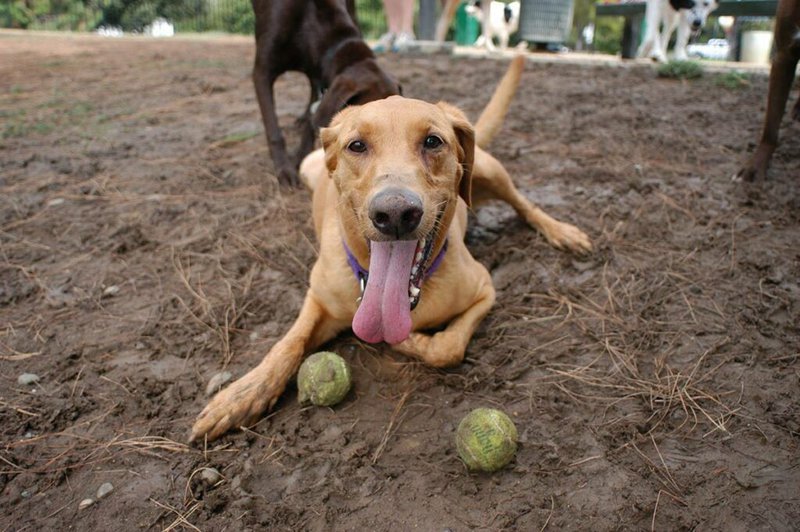
How Do You Treat Pica In Dogs?
Treatment of pica in dogs is greatly influenced by the underlying cause. And to determine what is responsible for your dog eating everything on a walk, you should take such a pooch for a routine medical examination, immediately you observe such a behavior.
Depending on the outcome of the medical tests, treatment for Pica in dogs can either be medical or behavior-oriented.
Medication To Treat Pica
Your vet may prescribe the use of antibiotics, corticosteroids or mineral supplements to treat pica in a dog. In cases where the dog is suffering from Anemia, a blood transfusion may be needed to counteract the loss of nutrients.
Deworming also helps in getting rid of intestinal parasites in dogs, thereby ensuring your dog gets access to more nutrients, and eliminating the need to eat dirt.
Change Your Dog’s Diet
Pica caused by a nutritional deficiency of your doggie’s meals can be treated by placing your pooch on a high-quality diet plan containing all the nutrients essential for proper growth.
Your pooch will get the nutrients it needs to stop its pica from high-quality, canned dog food. But if you would rather feed your dog homemade food, then you should consult with your vet or nutritionist to draw up a balanced diet plan.
Eliminate Stress Triggers
As stated earlier, stress may be responsible for pica in dogs, hence as a form of treatment, it’ll be helpful to locate and eliminate causes of stress in your pooch. And in cases where it is impossible to eliminate stress triggers in your doggie, such as when you’ve just moved to a new neighbourhood, you should comfort and reassure your dog, as much as possible.
Keep Your Dog Busy
To prevent your dog from becoming bored, and consequently taking to eating dirt, you should make sure to provide the pooch with lots of toys and regularly engage it in mentally stimulating exercises.
It may also help to reduce the amount of time your dog spends doing nothing outside. And if your dog must be outside, you should make sure to keep a close eye on its activities.
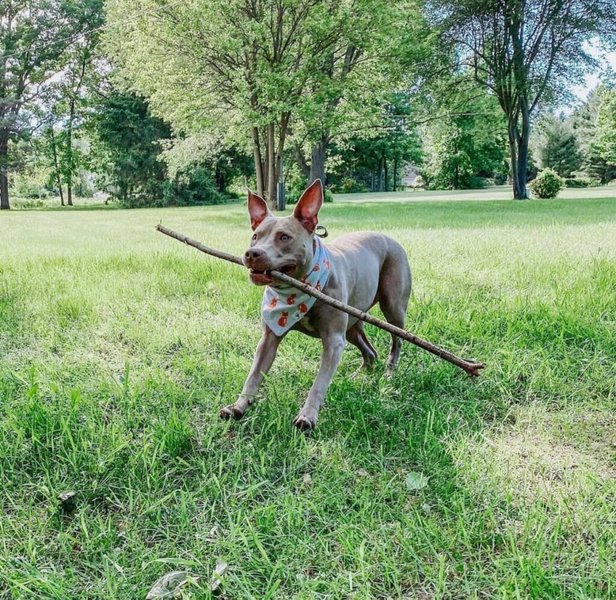
Related Questions
How Do I Stop My Dog Eating Everything? You can stop your dog from eating everything by teaching it to drop items on command, along with the use of positive reinforcement for acts of obedience. Also, by making the environment as relaxing as possible for a stressed doggie, you can correct the dog’s tendency to want to eat everything.
Do Puppies Outgrow Pica? Yes, most puppies tend to outgrow Pica. However, there is every tendency for a stressed adult dog or a grown pooch suffering from a nutritional deficiency or an underlying medical condition to revert to its dirt eating ways. And in this case, it’ll be considerably more difficult to correct Pica in such a dog.
Is The Beach Safe For Dogs? Yes, the beach is generally safe to visit for dogs, provided certain safety requirements are strictly adhered to. However, for dogs with the Pica condition, a trip to the beach may not be the best idea, and you may not be able to stop such a dog from wanting to get its nose in dirt or sand.

